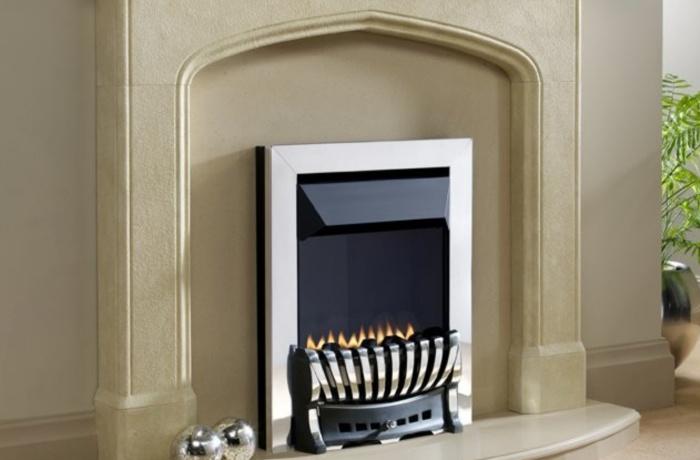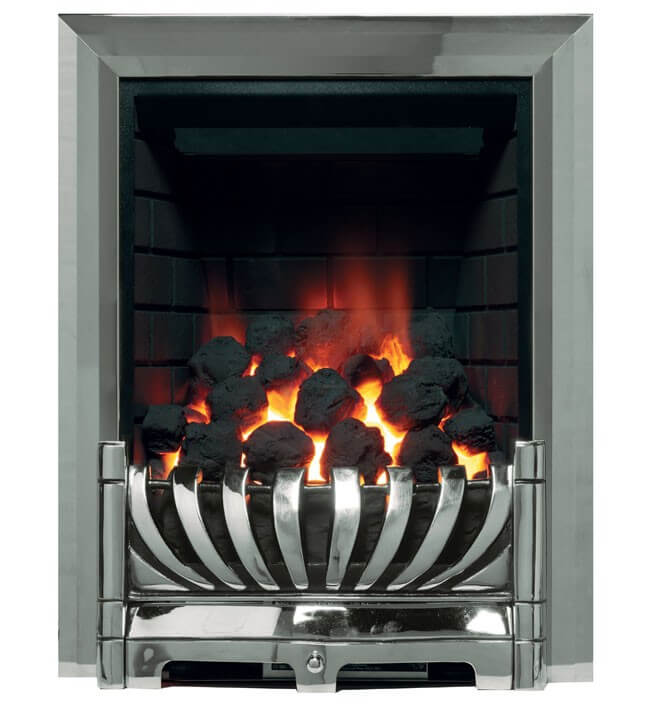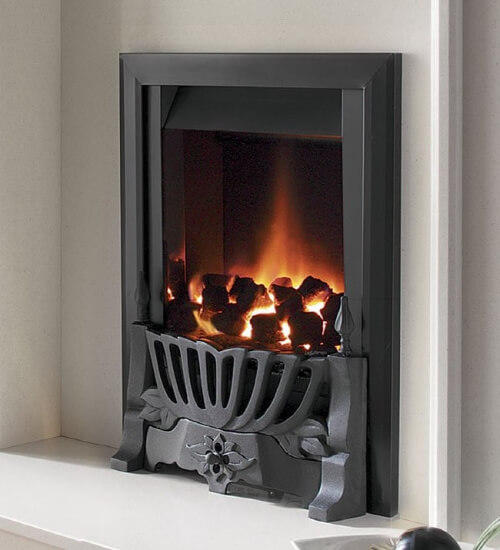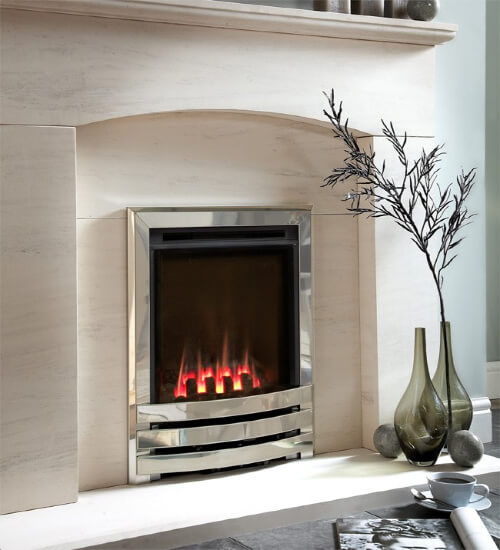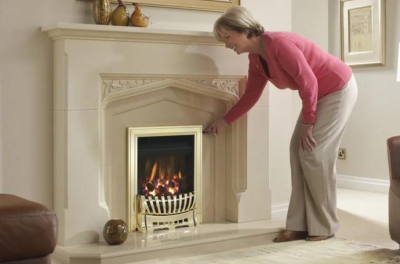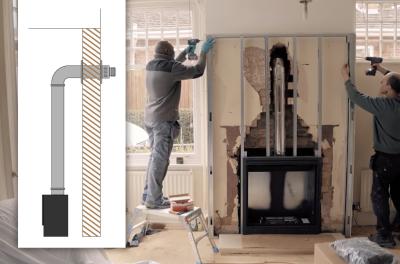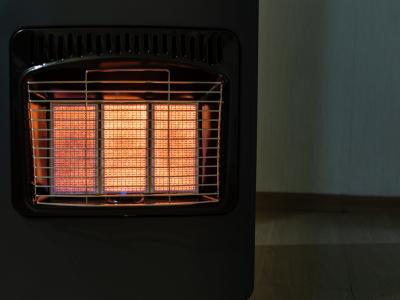We use cookies to improve your experience and our business. See our privacy/cookie policy or continue browsing to accept our use of cookies. View our cookie policy.
Gas Fire vs Central Heating - Which Should You Use?
The debate around using a gas fire or central heating comes down to one question; do you want to heat the entire house or just the room you’re using?
The main method you use to heat your home has the largest influence on whether you should heat a room individually or not.
There are essential points to bear in mind, such as running costs and their efficiency to heat a certain space. However, the size of the room in question, compared to the rest of your house, is also important.
Read on to learn more about which heating system is best suited to your needs…
What are the benefits of a gas fire?
High heat efficiencies combined with low running costs make gas fires an affordable source of warmth with the authentic real flame effects of log fires.
For heating a single room, few heat sources are as quick or reliable as a gas fire. Easy to operate, they can still function even if your boiler breaks down. This provides the reassuring knowledge that you won’t be going completely without heat.
Unlike other solid fuel fireplaces, gas is clean and convenient - quick to warm up and on-demand - with no ash residue or odours. A safe source of home energy, you can be assured that a gas fire has been independently approved for health, safety and environmental checks.
How efficient is a gas fire?
When it comes to efficiency - the amount of heat generated that goes into heating the room compared to how much is wasted - it depends on what type of gas fire you buy.
There are high-efficiency gas fires with efficiency rates of up to 90%, which Direct Fireplaces stock in various designs. A balanced flue high-efficiency fire can exceed even this, with up to 94% efficiency! This is because they are sealed with glass from the front, which means more radiant heat can be pushed out into the room.
In many fires, ventilation is often required in the form of a chimney, which can lead to the loss of warmth and warm air. However, flueless gas fires are an option which have an efficiency of 100%. They don’t need a chimney, so are perfect for homes without one or is not fit for purpose. These fires can be inset or wall-mounted and provide excellent heat output.
A balanced flue gas fire is an efficient option as they don't need ventilation, but they can be expensive to buy. In spite of this, they are often cheaper to run as they can be as energy-efficient as condensing central heating boilers.
Compared to your central heating, a boiler can be rated at 15KW energy consumption, some can be even higher. However, the energy output of gas fires can be powerful and are often rated at around 3.5KW.
Read more about our gas fires and their efficiency in this dedicated article.
What are the running costs of a gas fire?
Gas is often much cheaper than other sources of heating - up to 70% compared to electric fires. This is because gas has its own source, whereas electric is heated via another source.
Gas fires will typically cost around 5 pence per KW to run – which when compared to electric may cost around 15p per KW. Considering its high fuel efficiency and speed at heating a large room, this makes a gas fire extremely cost-effective.
You can learn more about installing gas fire with our complete gas fire buying guide.
What are the benefits of central heating?
An obvious benefit of central heating is that you can use it to heat your entire home, so, if you move room or go to bed, it’s pre-heated.
Technology is having a more significant impact on central heating. This includes smart meters and wireless temperature gauges. This you more control over your energy consumption.
If you have a smaller home, high ceilings or an open-plan property, it’s rarely worthwhile heating an individual room. You would be better served and more efficient to heat the whole house through central heating.
How efficient is central heating?
If you have an up-to-date central heating system, you will likely have temperature controls on your radiators and an electric thermostat.
They allow you to vary the temperature of different rooms or the entire house. This means you can arrange a time for your heating to switch on and off, allowing greater control over heating efficiency.
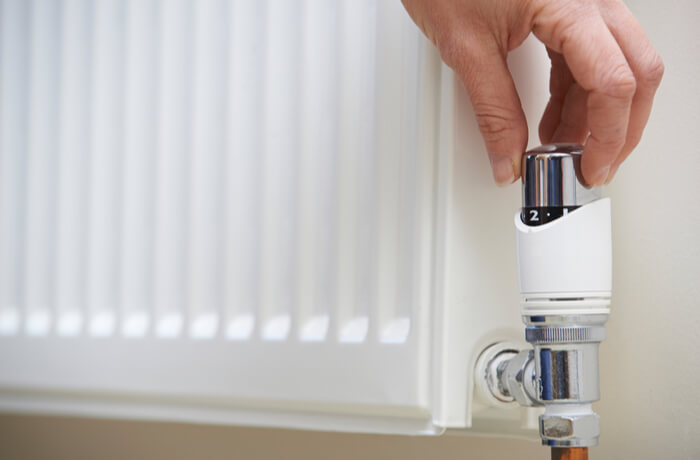
If you have a modern boiler, this is the most energy-efficient heating source for homes, being at least 90% efficient. Run on mains gas, where heated-up water is then pumped through pipes to radiators, this often the cheapest means of warming a home.
Unfortunately, an old boiler will never be as efficient as a new model; however, there are some steps you can take to make sure it’s running at peak performance when the weather turns cold.
These include using proper insulation around the home and on your pipes, bleeding your radiators, cleaning your boiler, annual boiler service and topping up the boiler pressure.
What are the running costs for central heating?
If you don’t have a central heating system already, it can be very expensive to install - often into the thousands. This is because instalment will include a boiler, radiators, pipes and controls.
For using your central heating, the average annual running cost for heating and hot water, using gas, in the UK can be over £500, based on your home using around 12,000 kWh a year.
Buying an efficient, reliable boiler will give you both peace of mind and lower heating bills - decreasing your running costs. Compared to an old G-rated gas boiler, you could save up to £1,000 a year on heating with a new A-rated condensing boiler.
Which heating system should I use?
This all depends on how you use your heating. If you are warming one room, and you’re going to stay there, then a gas fire is the best option. However, if you have people in numerous rooms, a small home or open-plan property, central heating is the system you should use.
A gas fire is great if it’s not quite cold enough outside to warm your home with central heating or if you’re staying in one room. You might also find that your central heating struggles to heat your room enough on a particularly cold night. Here, the high efficiency and low running costs of a modern gas fire can really help you out!
We hope this helps answer some of your questions surrounding gas fires and central heating, but if you need more from the Direct Fireplaces team then please get in touch.
Take a look at more posts on the Direct Fireplaces blog…
The Best Coal Effect Gas Fires & Electric Fires | Guide to Flueless Gas Fires | Should You Convert Your Open Fire into a Gas Fire?
[related_products is_auto_added="1"]direct fireplaces
Latest posts by direct fireplaces (see all)
- Which Electric Fireplace Gives the Most Heat? - February 5, 2021
- Retro Fires and Retro Stoves for the Home - January 22, 2021
- Do I Need a Fireplace in My New Home? - January 20, 2021

